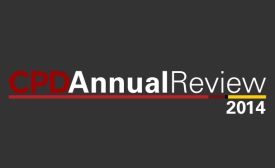cuba
Long before the U.S. and Cuba mended diplomatic relations, skateboarding brought together the two countries. After studying abroad in Cuba in 2010, Miles Jackson and a group of friends started Cuba Skate, a group that supports and promotes skate culture within Cuba.
Nowhere is the contrast between Benedict XVI and Francis more tangible than in the degree to which the papacy seems to have recovered its diplomatic and geopolitical swagger. The normalization of relations between the U.S. and Cuba in December 2014 came about in part thanks to Francis, who wrote private letters to President Obama and Cuban president Raúl Castro that reportedly helped break the ice between the two leaders.
The White House has proposed turning Radio Marti, a U.S. government-controlled broadcaster created in part to undermine communist rule in Cuba, into a separate entity as Washington seeks rapprochement with Havana.
The Havana excursion, which Team Coco’s editors are still furiously cutting together, represents a new form for him, an hour-long episode set to air March 4 where he is the perpetual “fish out of water” — an attempt to use comedy as a kind of diplomacy. “Maybe it's not a bad form of diplomacy. Maybe it's not bad to send a comedian over,” Conan said of the thawing U.S.-Cuba relations spearheaded by the Obama administration.
The 2014 CPD Annual Review demonstrates that although public diplomacy is present in every region of the world, it is predominantly in the northern hemisphere. North America is ranked the most active region in public diplomacy, with the United States contributing the most. Asia (Asia Pacific, Southeast Asia and Central Asia combined) comes in second, and Europe is third, with almost the same presence as Asia. As expected, China, Japan, and South Korea take the lead as the major actors in Asia Pacific. India is also very active in PD in South Asia.
As part of the CPD Annual Review process, in January we highlighted some of the year’s key public diplomacy moments in our Top 10 List of the most notable stories from 2014.
Launched in 2013, the CPD Annual Review was developed to serve as a guide to understanding the global landscape of public diplomacy, its ebbs and flows, its triumphs and its shortcomings.

Capturing the scope and scale of PD around the world through an analysis of English-language news stories from 2014.







